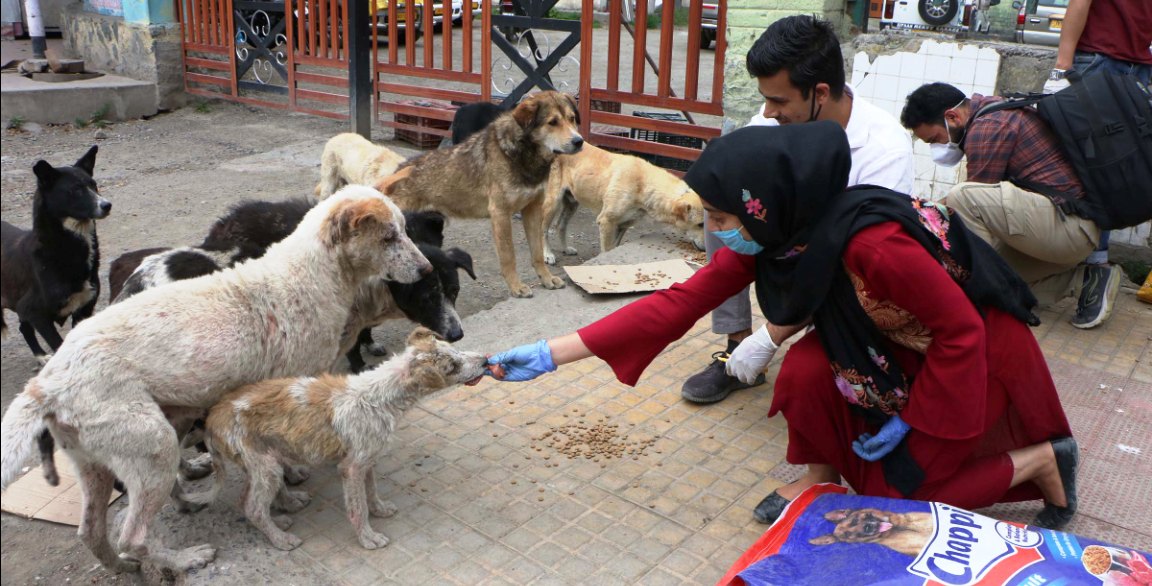by Maleeha Sofi
SRINAGAR: It was the return of the last two centuries on stage when a group of artists staged Chakdar Pather in Tagore Hall. Pather is basically a folk theatre that usually has satire and comedy as part of the process.
The play opened with a band of four people welcoming the guests to Shehnai, Surnayi, Nagar, and Dhol beats. The music was energetic to light up the stage. A group of dancers join in and entertain the audience more through the funny movements than the ‘dance’ itself.
In the next scene, two men Boud Maskhar (senior joker) and Loukut Maskhar (junior joker) started attacking technology, the digital world, and the zee generation. They hint at doing the play Chakdar Pather, which starts in the next scene.
The play was based in Kashmir’s nineteenth and twentieth centuries when most of the land was the ruler’s property and distributed to his family, friends and the bourgeoisie.
The stage was set up in a paddy field with the peasants working. The hard work of peasants was beautifully expressed in a song sung live by Sajad Maqbool Mir. The play exhibited the struggle of peasants to cultivate crops and the meagre income it generated for them.

It showed how some peasants were on the verge of suicide because of paying taxes to Chakdars (land contractors). They had to toil throughout the season, but it did not generate enough money to run a family. Their families would often sleep without meals and some of them lost their lives to hunger.
The play shows a Kardar – Ram Chandar and his accountant – Somnath calculating the land given to Kaashtkars and the taxes they paid in the past year. If someone did not pay, they would take back the land and give it to someone else who would pay better. They would visit the village once in a while to check on the peasants and collect taxes. They were shown beating those who failed to pay the whole amount and praising those who paid them. Kardar was so affectionate towards Chakdari that he considered it over God and his own life.
Then, Kardar’s used to be the bridge between the peasants and the land contractors appointed by the despotic rulers.
The whole play presented a serious issue with a tinge of comedy through dialogues and actions, which kept the audience hooked. There was not any gap left to feel the other way about it. Sajad Maqbool Mir played the rabab in the background, which also helped the audience to stay hooked to the stage.
As the peasants suffer, the play goes on to show, they plan to complain to their leader about it and they do so. The leader gives them all the support needed and encourages them to speak against it. They plan a strike. Soon, all of them visit the Kardar. The leader demands a one-fourth share of the income generated through the crops as the peasants work hard. Kardar, who seems to be afraid of the leader, agrees to their demand.
The play was written by Reshi Rasheed, and its design and direction were done by Ramzan. The character of Boud Maskhar is played by Mehraj ud Din Bhat, Loukut Maskhar by Aashiq Hussain Sheikh, Jamal by Mushtaq Ahmad Dar, Ramzan by Nisar Ahmad Bhat, Rajab Ganaie by Javed Ahmad Shah, Leader by Ishfaq Ahmad Bhat, Ram Chandar by Ghulam Rasool Lone (Founding Member of the theatre group), Somnath by Master Abdul Samad Mir and other Actors (peasants) by Mohammad Maqbool Bhat, Mohammad Ramzan Lone, Abdul Majeed Dar. The singer in the play is Sajad Maqbool Mir.
Dhol is played by Ghulam Mohammad Bhat, Shehnai was played by Ghulam Mohammad Bhat, Surnayi is played by Abdul Khaliq Bhat, and Nagaar was played by Ghulam Mohammad Bhat. The dancer is Bilal Ahmad Bhat. Costumes were provided by Abdul Samad Mir, Light Direction by Aashiq Hussain Najar, Lights Operations by Tariq Ahmad Hajini, and Sound by Aijaz Ahmad. The stage was set up by Trilok Singh Bali, Mohammad Amin, and Suhail.















